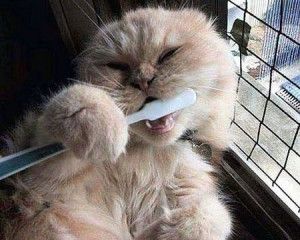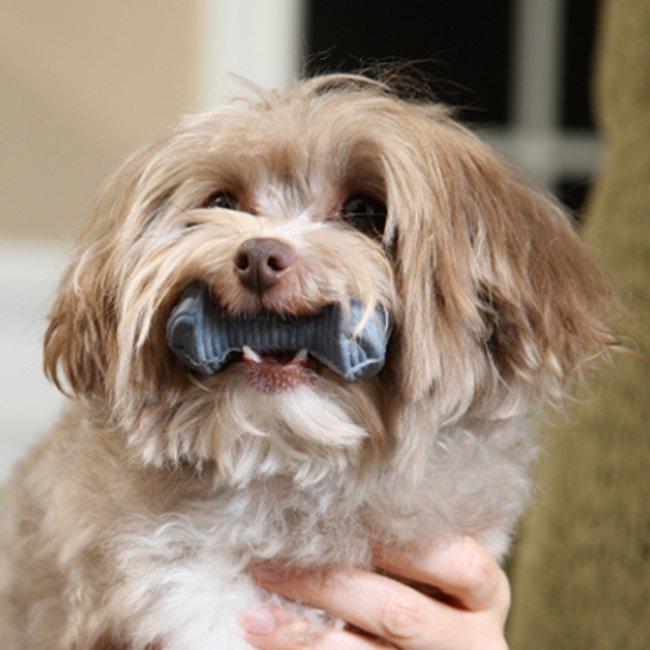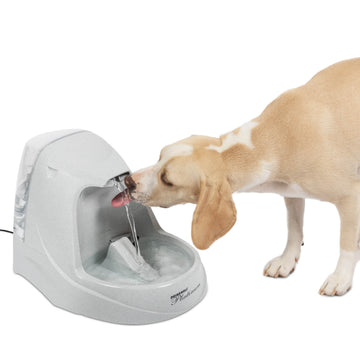By Roslyn Ayers, PetSafe Web Content Specialist
Your dentist tells you to brush your teeth 2-3 times a day, right? Your pet’s teeth are no different. How white is your pet’s smile? Are you tired of bad dog breath or stinky tuna breath? February is pet dental health month, and now’s the perfect time to have your pet’s teeth checked. Many vets offer discounts on teeth cleaning and related procedures this month. Here are some tips to keep your pet’s mouth healthy.
You go to the dentist twice a year and brush your teeth everyday. Shouldn't you take the same care of your pet's teeth?
1) Get annual teeth cleanings. In a basic dental procedure, your vet will probably remove tartar/calculus from teeth and gums, check periodontal pockets for gum disease, polish tooth enamel, and disinfect the mouth. Pets are usually sedated for a teeth cleaning so your vet can thoroughly clean your pet’s mouth without your pet experiencing discomfort. After your pet’s cleaning, expect reduced activity and lack of appetite for the first 24 hours.
2) Brush your pet’s teeth at home. It’s never too late to start a dental routine at home. The younger the better, but it’ll become quick and easy with practice and a daily routine. Use a finger brush or soft toothbrush with tuna juice or bouillon-flavored water to brush your pet’s teeth. Brush at a 45 degree angle, moving back and forth in a circular motion. Make it more fun with treats afterward. Try to aim for at least 3 times per week to maintain healthy teeth, or daily brushings to control existing dental problems.
3) Consider other dental aids. Your vet can provide you with special toothpaste, oral rinses, and water additives for your pets too. Never use human toothpaste on a pet; these are not intended to be swallowed and the mint flavor may not be pleasant for your pet.
4) Buy the right treats and toys. Certain kinds of pet food and toys are better for your pet’s teeth than others. Greenies and Bristle Bones clean teeth and remove tartar/calculus as dogs chew them. You can also find dental diet pet kibble. Natural bones, hooves, and other hard treats can fracture teeth or be hard to chew. For pets that have trouble chewing, try a soft treat like Lickety Stik.
5) Check for bad breath. Pets are not supposed to have really bad breath. Halitosis is often a sign of dental disease. Contrary to common belief, your pet’s mouth does not clean itself, nor is dry food a substitute for regular teeth cleaning. Examine your pet’s teeth monthly to make sure there are no signs of tooth disease. With proper dental care, you can prevent painful periodontal disease in your pet and they can keep their teeth. Untreated dental problems in pets can also lead to serious medical problems such as heart, liver, and kidney disease.
How do you take care of your pet’s pearly whites?
*Resources courtesy of Cedar Bluff Animal Clinic and Middlebrook Animal Clinic.
ABOUT ROSLYN At PetSafe’s Knoxville headquarters, Roslyn Ayers is the Web Content Specialist. Roslyn comes from a family of animal lovers and has a B.A. in Writing/Communications from Maryville College. She has volunteered with various animal rescues in Tennessee and South Carolina. Roslyn currently shares her home with four cats.



